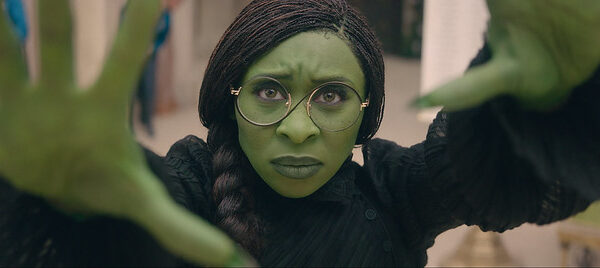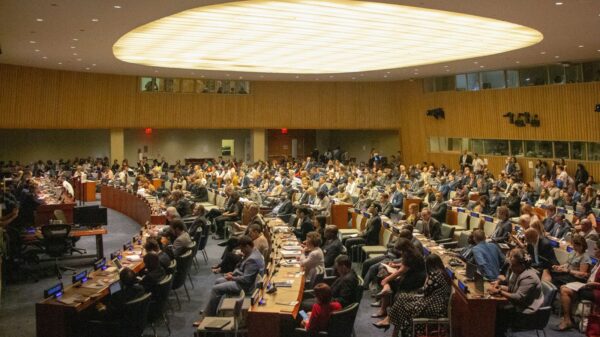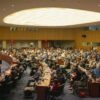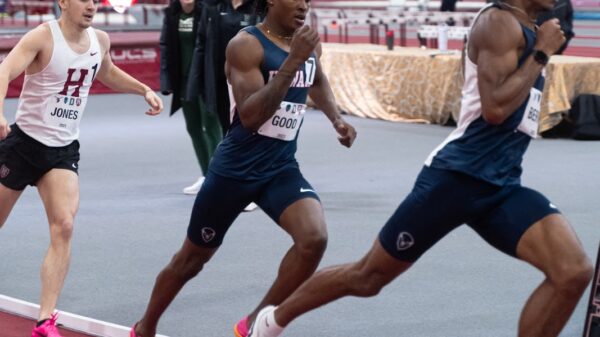
Although many are aware of the Peace Corps, the independent agency and program of the United States government that trains and deploys volunteers to provide international development assistance, some students are not aware of its origins that came from the work of those at historically Black colleges and universities (HBCUs) nor do they see themselves in international careers.
The Peace Corps was established in March 1961 by executive order of former president John F. Kennedy and authorized by Congress the following September by the Peace Corps Act. Gloria Braxton, the former director of Southern University’s Center for International Development Programs, noted how the Peace Corps program was modeled after Operation Crossroads Africa (OCA), a once-flourishing HBCU exchange program founded by the Rev. James H. Robinson to promote international scholarship, foreign language proficiency and cultural and racial understanding.
In 1954, Robinson toured Africa on behalf of the Presbyterian Board of Foreign Missions and returned convinced that the best way to help the people of Africa was to provide practical aid to the continent. Thus, the clergyman and humanitarian founded OCA in 1958. As an alumnus of Lincoln University, Robinson was committed to social justice and worked with Kwame Nkrumah and Nnamdi Azikiwe, the first presidents of Ghana and Nigeria, respectively.
With his ideas gaining support from noted individuals in Africa, they also caught the attention of those in the U.S. as well. The Kennedy Administration sought Robinson’s advice in organizing the Peace Corps in 1961. He served as vice chairman of the organization’s national advisory council.
Furthermore, via OCA, Southern University’s initial international program in Africa began in the 1960s with an assignment to teach language and cultural skills to over 100 Peace Corps volunteers in French-speaking Gabon and Guinea.
Many associate the inception of the Peace Corps with a predominantly white institution, the University of Michigan in Ann Arbor where Kennedy spoke in October of 1960. However, even the former president confirmed in his 1962 address to OCA volunteers visiting the White House, that “Operation Crossroads Africa was the ‘progenitor’ of the Peace Corps.”
In “World View: HBCUs Have a Little-known History of Involvement in International Development,” Joan Morgan highlights how HBCUs have long been leaders in the field of international development, dating back to the 19th century when Tuskegee Institute was invited to teach cotton cultivation in Togo by the colonial German government. Other colonial governments followed Germany and launched similar projects with HBCUs. A prototype of the Tuskegee program was later developed in Liberia by Prairie View University and named the Booker T. Washington Vocational Institute.
As of October 2019, there were 7,334 Peace Corps volunteers serving in 61 nations. A 2020 report concluded that only 7.8 percent of Peace Corps volunteers were African Americans compared to white volunteers, who made up 64.7 percent, and Hispanic/Latino volunteers, who made up 13.8 percent of volunteers.
In March 2020, all volunteers were evacuated and programs were suspended as a result of the COVID-19 pandemic. Similar to other institutions hit hard by the pandemic, the Peace Corps also experienced staff turnover and periods of HR inactivity, according to James Ham, an alumnus of North Carolina Central University and the Country Director for Peace Corps’ South Africa headquarters, discussed the Peace Corps’ return post-COVID.
However, Ham, who has experienced service tenures in west, east, and southern Africa, previously served as the country director to Uganda and is the only African American man in his position, believes understanding their history in its development should empower more Black students from HBCUs to pursue international careers and opportunities within the Peace Corps.
“My career and exposure in Africa have helped me develop as a person and leader. I am who I am because of the communities that have accepted me on the African continent,” Ham said.
He also believes that students at HBCUs should consider studying and working in foreign nations.
“Literature has shown that young people who travel abroad acquire different insights and have increased chances of completing graduate school,” Ham said.
Howard University, with its geographic location in Washington D.C., an international hub as well as the nation’s capital, has a unique connection to the Peace Corps. Among HBCUs, Howard University has one of the largest numbers of returning Peace Corps volunteers (RPCVs) and one of the largest RPCV groups who have served in South Africa.
Originally from Oak Park, Illinois, Cerise Bridges, ‘98, is a Howard alumna who served in the Peace Corps in Kenya. During her experience, Bridges realized her passion for the environment and after her service years, completed her graduate studies in Global Environmental Policy at American University’s School of International Service.
“I served between 1999-2001, and my experience was amazing. I heard horrible stories before my service, but it was one of the best decisions I’ve made, and I would not have the career I have without the Peace Corps,” Bridges said.
“Volunteers were predominantly white, so my presence was sometimes confusing to Kenyans, but always appreciated and welcomed. I know my presence made a difference, particularly to the kids and other volunteers. It’s important for us to be part of the conversation in shaping international affairs,” she concluded.
Lesley Stewart, ‘98, is also a Howard alumna who served in the Peace Corps. Originally from Long Beach, California, Stewart served as a business volunteer working on organizational management in Kenya as well as microfinance in Uganda. Stewart mentioned that it is important for HBCU students to consider international careers because brown people are most of the world’s population.
“As an African American volunteer serving in East Africa, I was shocked by how little they knew about Black Americans. Their history with Europeans is vastly different and that was a learning experience for me,” Stewart said.
Today, over 240,000 U.S. citizens have participated in the Peace Corps. Students interested in the Peace Corps can apply here.
Copy edited by Alana Matthew













